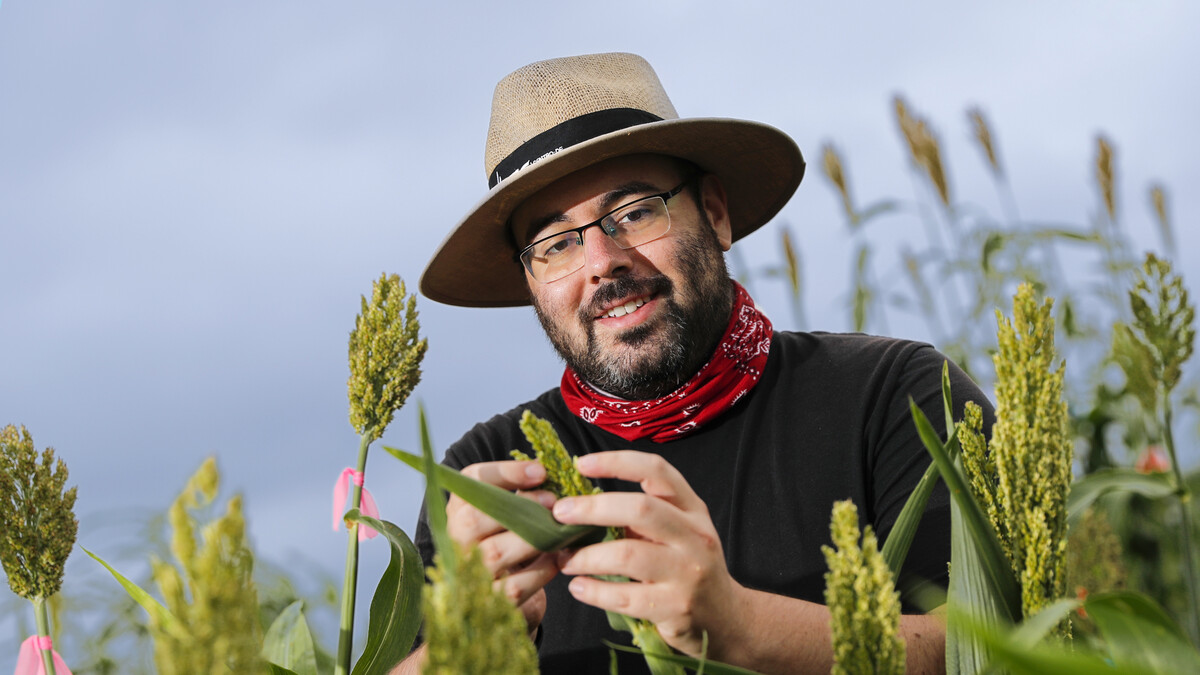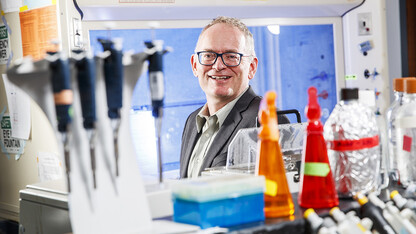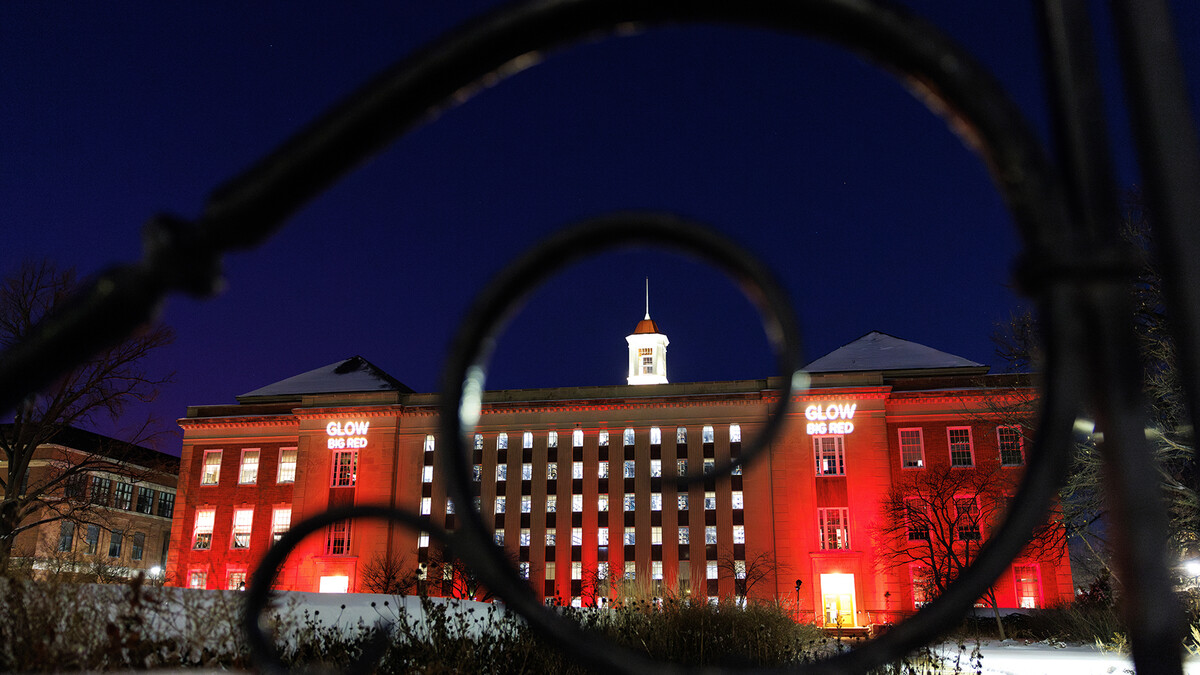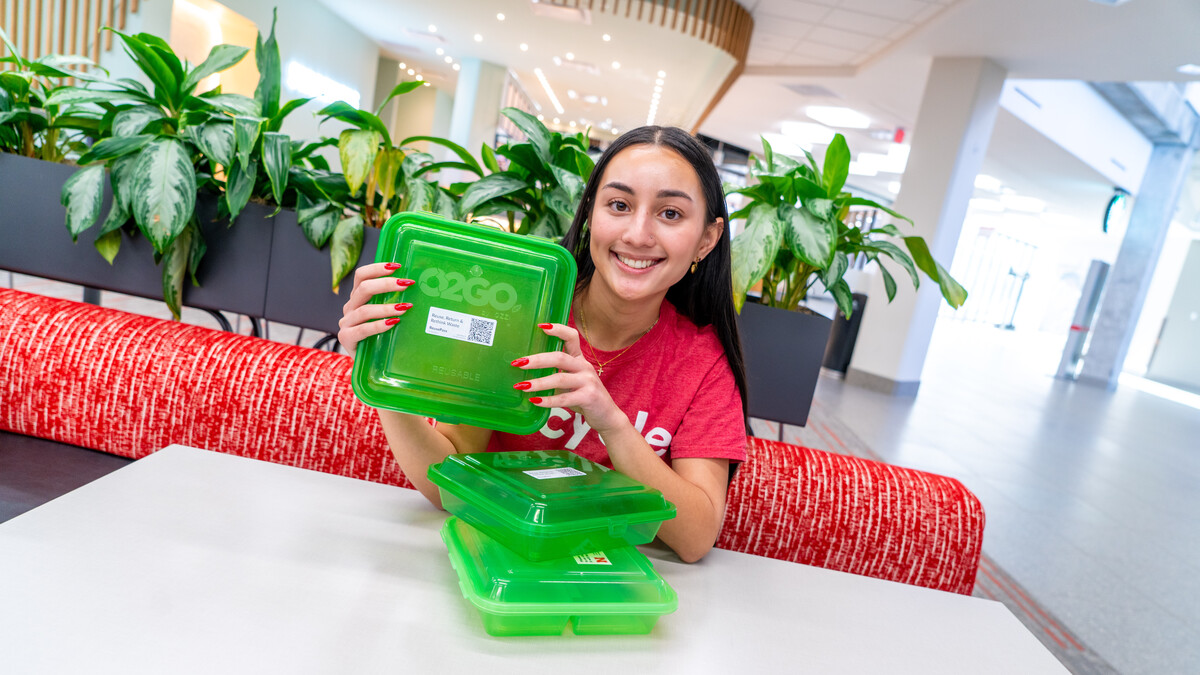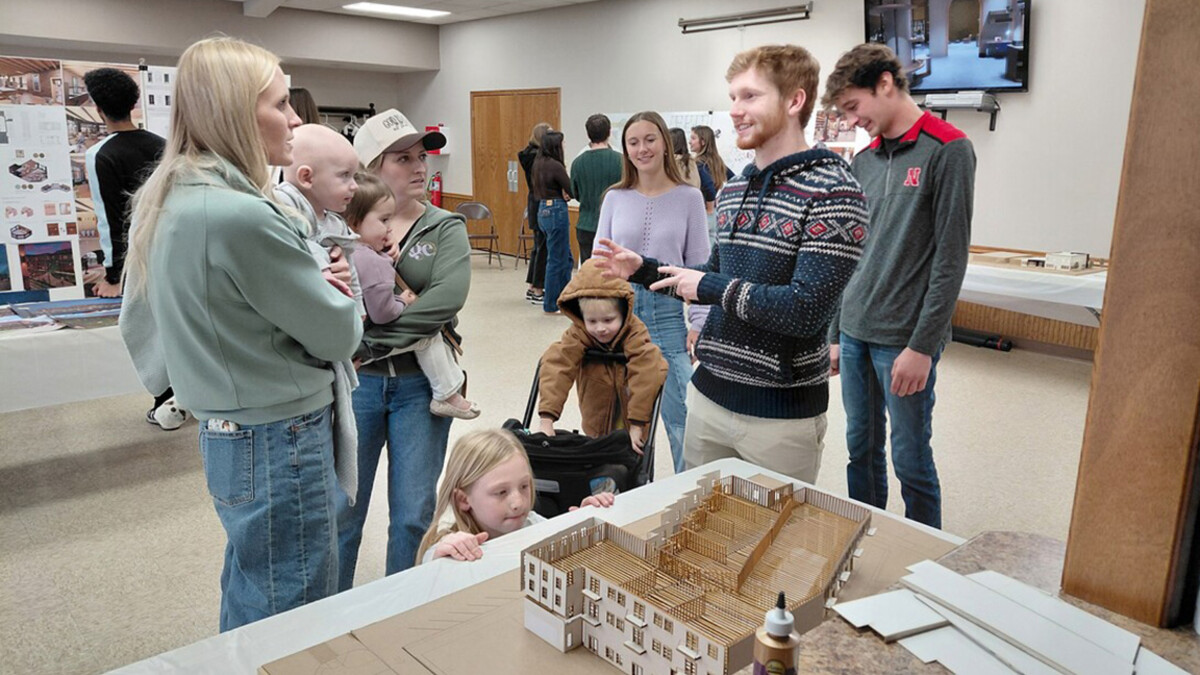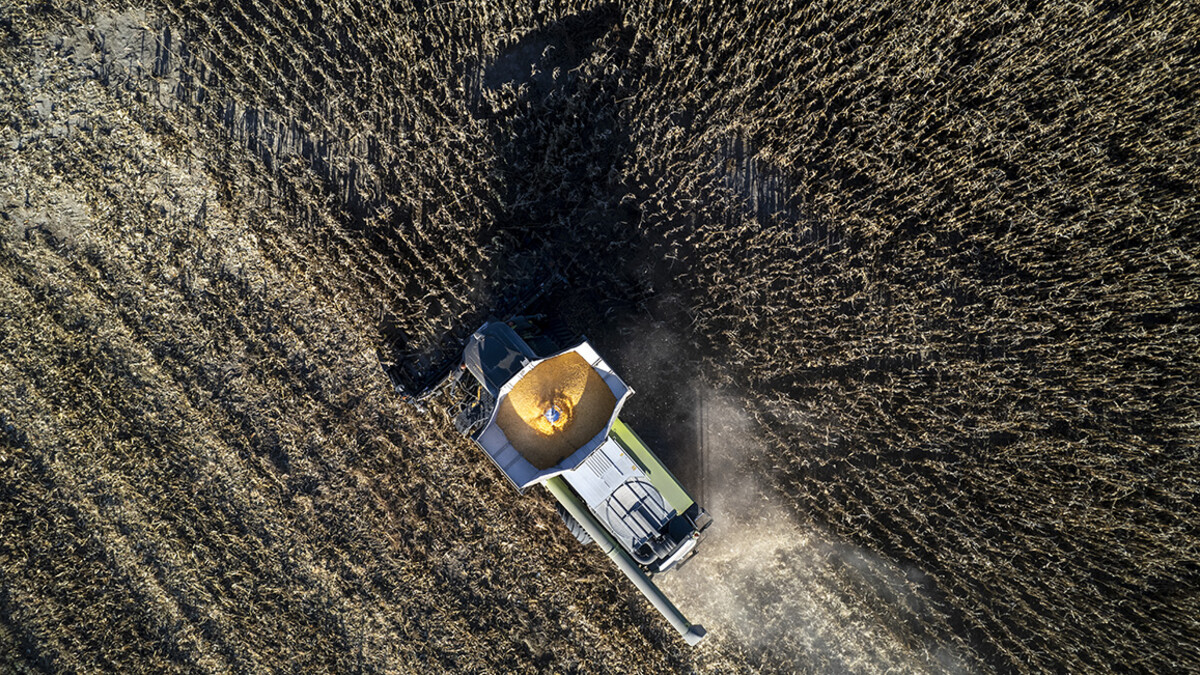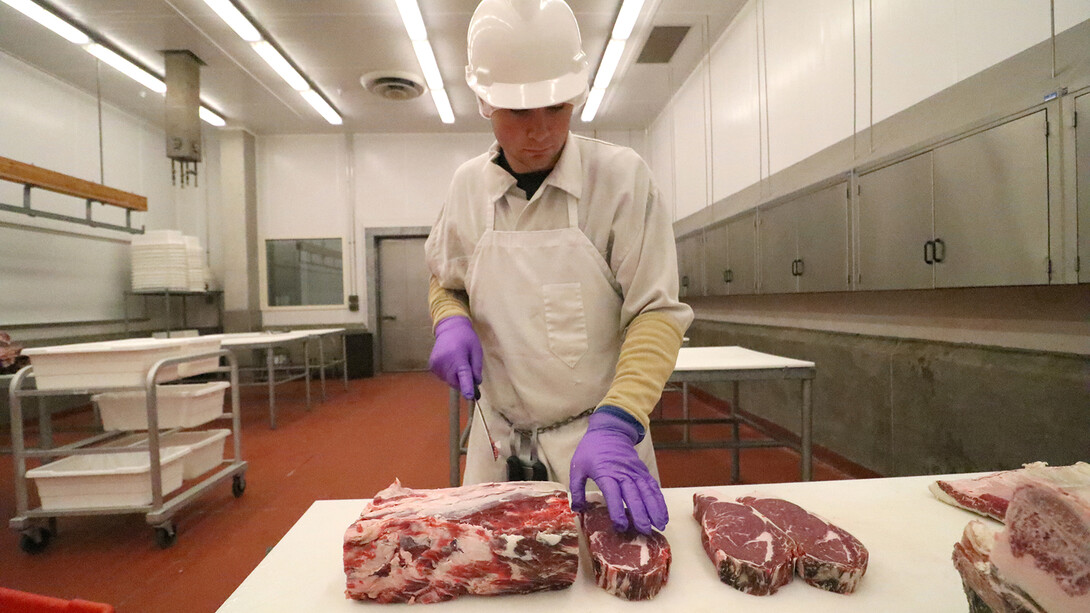
The Loeffel Meat Shoppe at the University of Nebraska-Lincoln will host a grand reopening from 11:30 a.m. to 5:30 p.m. May 3. The celebration will include recipe samples; demonstrations by Nebraska Extension on food safety, knife care, and proper knife usage in the home kitchen (11:30 a.m. to 1:30 p.m.); and store sales and giveaways.
The shop is a USDA-inspected retail meat sales operation that sells cuts of beef, pork, lamb, goat, smoked and slicing sausages, brats, naturally cased wieners and multiple varieties of ready to eat snack sticks. The retail store, located on East Campus at the corner of 38th and Fair streets, is open from 1 to 5:30 p.m. Tuesdays and 11 a.m. to 5:30 p.m. Fridays. It has been open and operating since the 1960s.
“We’ve been in the process of making some updates to the store and to our inventory,” said Jordan Wicks, Extension meat specialist. “We’ve expanded our retail hours and are now offering some fresh beef and pork items alongside our frozen inventory.”
Sales from the meat shop offset costs associated with the academic programs in animal science. Livestock are harvested and processed for sale in the Loeffel Meat Laboratory with assistance from Nebraska students in the department. Students gain experience by learning how to process, package and sell the products that they process, in addition to playing a role in developing new products to sell in the shop, such as the Jalapeño Popper Bratwurst, which was a two-time national award winner.
“Our customers always tell us we’re one of the best-kept secrets in Lincoln,” Wicks said. “We wanted to have an event to thank our current customers for their business, but also provide some added value from the excellent resources that we have here on campus for the community.”
The shop and laboratory are named in honor of William J. Loeffel, the first meat scientist at the university, who was a faculty member from 1919 to 1962 and served as chair of the department from 1938 to 1959. Loeffel is one of many pioneers in the meat industry from Nebraska. In the 1970s, Roger Mandigo developed the technology that led to the creation of the McRib for McDonalds, and Chris Calkins’ work with new cutting procedures returned more than $1 billion to the beef industry, including the development of the flat iron steak.
“Our students do fantastic work, and our products are a showcase of that,” Wicks said. “The future of meat processing, whether at large plants or your local locker, starts with students having hands-on opportunities like the ones we provide at the university.”
